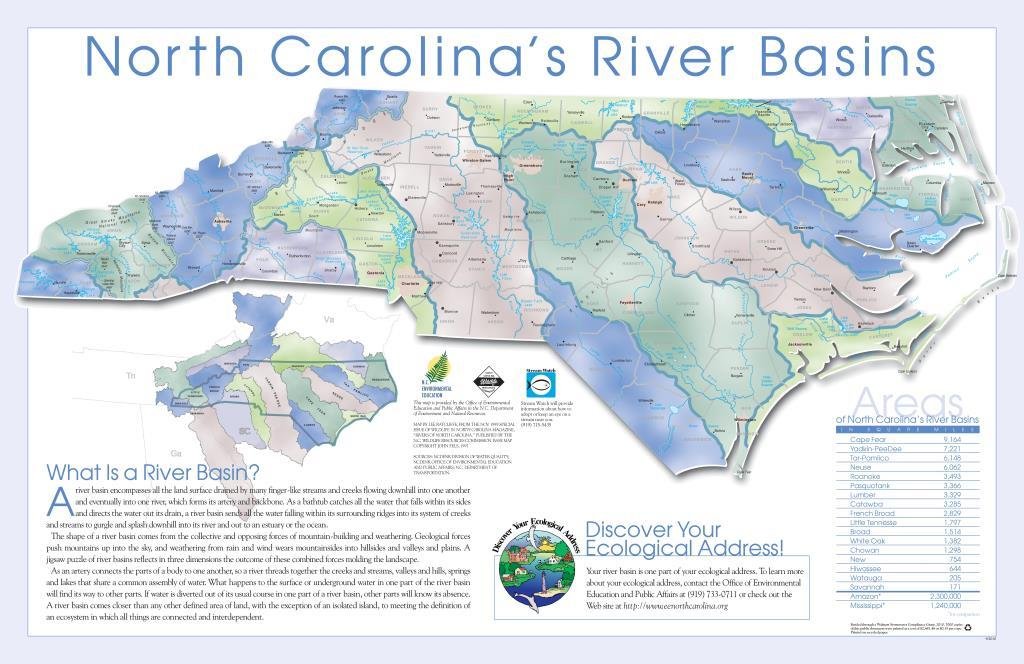Dry weather conditions place catawba-wateree river basin in stage 1 drought
LENOIR, NC (November 2, 2023) ⇒ The Catawba-Wateree Drought Management Advisory Group (CW-DMAG) announced yesterday, Nov. 1, 2023, that warm and dry weather conditions have placed the Catawba-Wateree River Basin in Stage 1 of the group’s Low Inflow Protocol (LIP).
Stage 1 is a drought stage that requires the first phase of operational adjustments at Duke Energy’s hydroelectric facilities. Voluntary water conservation by all water users is strongly encouraged.
“While some areas of the basin have received scattered rainfall, the lack of widespread and consistent precipitation along with warm temperatures have resulted in increased drought conditions,” said Ed Bruce, P.E., Duke Energy, CW-DMAG coordinator. “We will continue to monitor conditions and provide updates as needed to best protect the shared water supply available to our communities.”
CW-DMAG was established in 2006 to monitor drought status and to recommend coordinated actions for CW-DMAG members. CW-DMAG members include the area’s public water suppliers and several large industrial users withdrawing water from the river and lake system, North Carolina and South Carolina resource agencies, other federal agencies and Duke Energy.
The LIP was developed during Duke Energy’s relicensing process for the Catawba-Wateree Hydroelectric Project. The goal is to help major users share responsibility and set priorities to conserve the limited water supply during drought conditions.
Due to warm temperatures and below average rainfall since earlier this year, water storage in the 11 reservoirs in the Catawba-Wateree River Basin has decreased and stream flows that feed the reservoirs are well below normal.

The Catawba River Basin is shown above in green running from Avery County in the north to Union County in the south. Counties included in the Catawba River Basin are Avery, McDowell, Burke, Caldwell, Alexander, Catawba, Iredell, Lincoln, Gaston, Mecklenburg, Union, and several counties in South Carolina.
“We wanted to be proactive in making the community aware of increased drought conditions and ask customers to be mindful of water use,” explained Jimmy Bagley, City of Rock Hill’s Deputy City Manager and Chair of the Catawba-Wateree Water Management Group. “The sooner we start conserving, the better for our region as we work together to preserve our shared water resources.”
During drought conditions, Duke Energy’s hydroelectric plants continue to operate but at reduced levels to progressively decrease downstream flows and preserve water storage in the lakes. At Stage 1, hydroelectric operational adjustments include:
- A reduction in downstream minimum flow releases.
- Reduced recreational flow hours.
- Adjustments to the allowed minimum lake water levels.
At Stage 1, Duke Energy will increase surveillance of its public boating access areas along the lakes. To ensure the safety of boaters and protect property, some boat ramps will close temporarily due to declining lake levels. Any closures will be listed on the Duke Energy Lakeview app and Duke-Energy.com/Lakes.
The City of Lenoir’s Water Shortage Response plan is on the City website at www.cityoflenoir.com/633/Water-Shortage-Response-Plan.
For questions about voluntary water use restrictions, call Joshua Harris at 828-757-2177.
Support the Caldwell Journal for as little as $1 a month through Patreon. Thank you!
![]()
